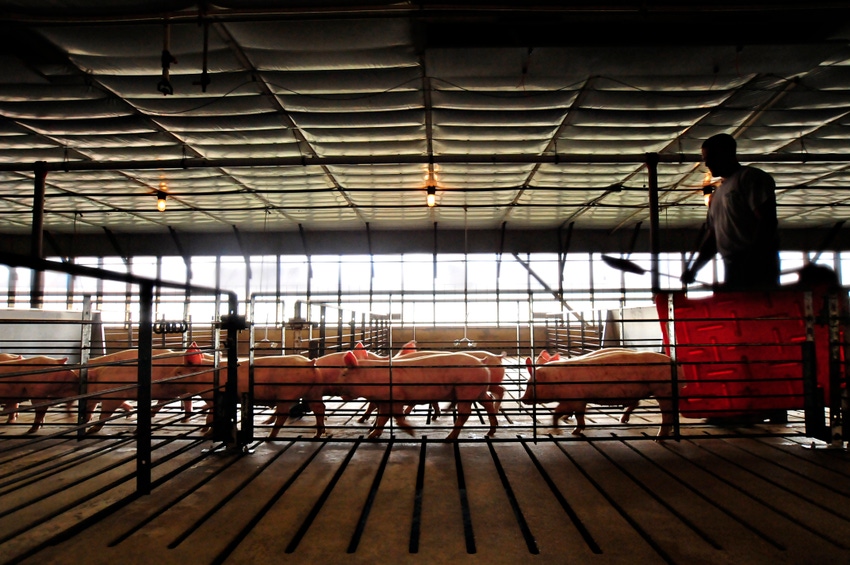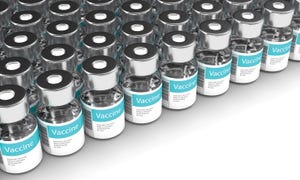More important than ever to protect farm personnel, pigs
National Pork Board offers five recommendations for keeping people, pigs healthy during COVID-19 crisis.

Last week I had the privilege of interviewing via phone two recipients for National Hog Farmer's Masters of the Pork Industry issue in May. While I wish both interviews could have been face-to-face, under the present circumstances I'd take a long-distance chat with these two legends any day.
After visiting with these two Masters (and no I'm not going to give any hints or teasers of who they are) I reflected on our conversations and realized they both shared the same sentiments about their careers in the industry. It's the great people they have worked with over the years that have made their jobs so enjoyable.
I'm sure many of you can relate, and now U.S. pork production teams are trying to protect their great people while safely working together to feed our country. Part of our nation's essential critical infrastructure, hog producers must work as normally as possible to help ensure that our domestic food supply remains uninterrupted. It is also more important than ever to protect farm personnel and pigs.
Available on the National Pork Board's COVID-19 resource page are five recommendations for keeping your people, as well as your pigs, healthy. Some of these tips may be part of your farm's general biosecurity program, while others have been strongly recommended by the U.S. Centers for Disease Control and Prevention in the last few weeks. Regardless, repetition breeds retention and this is a great reminder piece to hang up in the breakroom or the office.
Limit farm visitors and access to swine barns. Don't allow unauthorized visitors. (No visitors advised during the COVID-19 pandemic.) Limit entry to caretakers and essential service personnel. Don't allow anyone exhibiting signs of respiratory illness to enter. If you allow visitors, ask if they have had any recent contact with others who have signs of illness. Follow your farm's shower-in/shower-out policy. Wear farm-specific clothing and footwear.
Wash your hands often. Wash your hands and arms frequently with soap and water to avoid spreading germs. Wash hands before and after handling pigs, eating, using the restroom and smoking, as well as before touching your face, mouth, eyes or nose. To help kill germs, wash with warm water, if possible, apply soap, lather for 20 seconds, scrub all surfaces and rinse under running water. Use an alcohol-based (60% or more) hand sanitizer if soap and clean water are not available.
Stay home if you are sick. Follow your farm's sick-leave policy if you develop signs and symptoms of respiratory illness, such as fever, cough, body aches, fatigue, shortness of breath, vomiting and diarrhea. Even without a formal diagnosis, do not enter swine facilities for at least seven days after developing signs of respiratory illness, even mild signs. Seek medical care if needed. If diagnosed with influenza, don't enter swine facilities until fever-free for at least 24 hours without the use of fever-reducing medication. For COVID-19, the CDC has both a test and a non-test strategy for lifting isolation and returning to work.
Follow biosecurity practices to protect pig health. Keep food and drink out of animal areas. (A no-pork policy is recommended.) Properly adjust and maintain ventilation to minimize re-circulation of air inside animal housing facilities to reduce the exposure of pigs to viruses from other pigs and to reduce their exposure to human influenza viruses. Prevent the introduction of birds into swine facilities. Avoid contact with birds and bird droppings in general and avoid use of non-chlorinated surface water. Use personal protective equipment in barns. Follow recommendations for yearly vaccinations against the seasonal influenza virus. Review herd health programs with a veterinarian to ensure they are up-to-date and effective for conditions on the farm.
Don't be afraid to ask for help. Health issues can take a toll on mental well-being, but there are many available resources that you can contact, including AgriSafe Network, Rural Mental Health Hub, the Upper Midwest Agricultural Safety and Health Center at the University of Minnesota, Colorado State University Extension and Iowa State University Extension. .
About the Author(s)
You May Also Like





